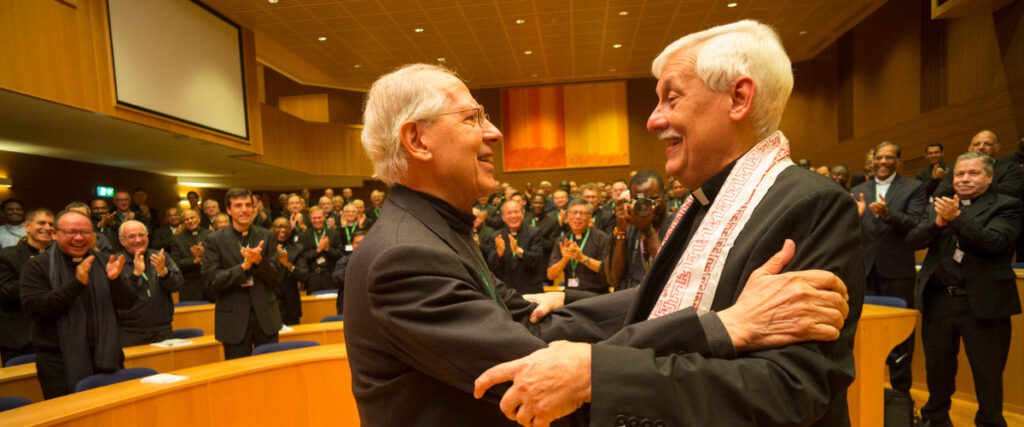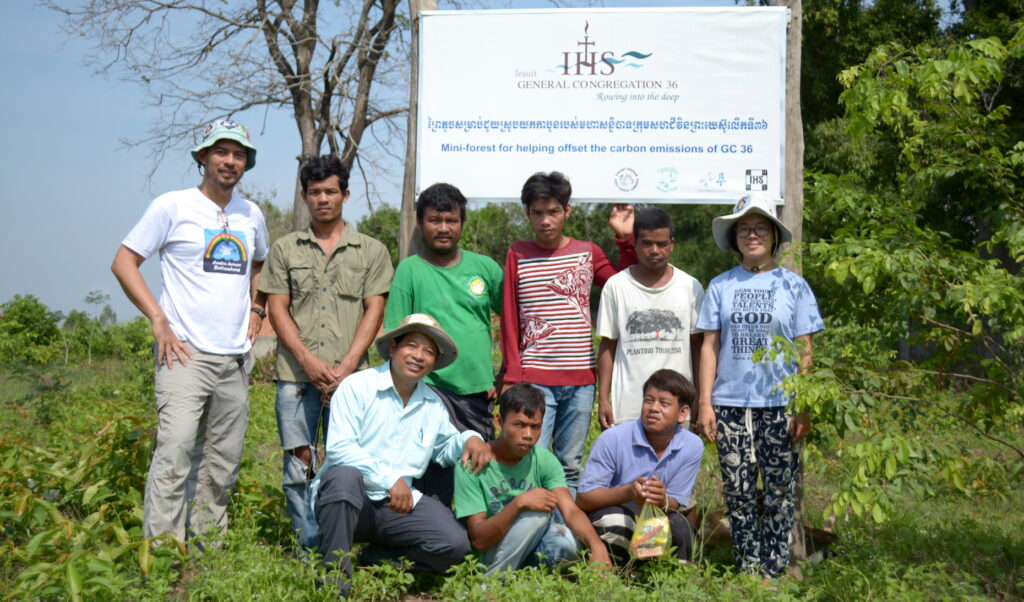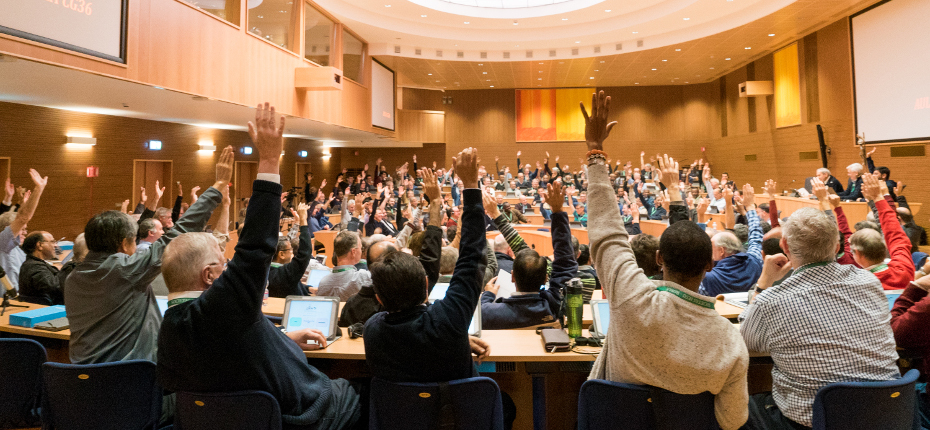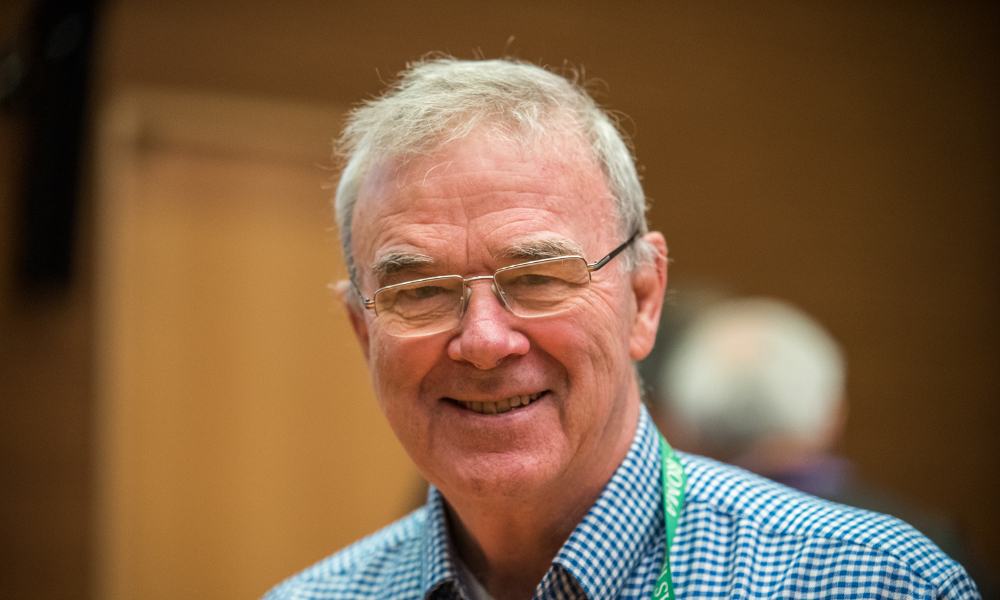All Jesuit communities and collaborators in the Jesuit Conference of Asia Pacific are asked to pray for the guidance of the Holy Spirit for the forthcoming General Congregation. In Asia Pacific, our first meeting of General Congregation 36 begins on October 19, 2015 in Manila.
We have prepared a set of prayers for the success of GC 36, and the prayer card can be downloaded from this page by clicking on the respective language. Thus far, it is available in ENGLISH, CHINESE, KOREAN and VIETNAMESE. You may also wish to download this animated version from the Jesuit Conference of Asia Pacific YouTube channel.







